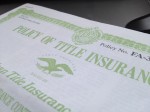Location, Location, Location!


Serving South Florida


Filed under: Blog, Exclusive Buyer Agent, First Time Homebuyers, Florida Real Estate, Home Buyer Advice, Home Buyers, Homebuyer Advice, Kim Around the Web, Real Estate, real estate news, Real estate trends, Relocation, South Florida Real Estate, western north carolina real estate by Kim Bregman
Comments Off on Location, Location, Location!

When buying a home, most people focus on how much the home costs and what interest rate they can get on the loan. While understanding the lending process is very important, the other fees that home buyers overlook when it comes to their home purchase.
There are some fees that will require up-front payment. Other fees may be rolled into the loan for your home. It’s important to understand the difference and know what you’ll be expected to pay.
Earnest Money Deposit
To prove you’re “earnest” in your purchase commitment, a buyer can expect to deposit to a trust account 1% to 2% of the total purchase price as an earnest money deposit within days of entering into a contract.This amount can change depending on market factors. If demand in your area is high, a seller could expect a larger deposit. If the market is cold, a seller could be happy with less than 1%.
Other governing factors like state limitations and rules can cap how much earnest money a seller can ask for.
Escrow account
An escrow account is basically a way for your mortgage company to make sure you have enough money to cover related taxes, insurance and possibly mortgage insurance. The amount you need to pay varies by location, lender, and loan type. It could cover costs for a few months to a year.
If you only provide a small down payment, you may be required to purchase private mortgage insurance. Private mortgage insurance, commonly referred to as PMI, is typically provided by a private mortgage insurance company to protect lenders against loss if a borrower defaults.
Sometimes this means you are required to pay a full year’s worth at time of purchase, or it will be rolled into your monthly payment.
Escrow accounts are common for loans with less than a 20% down payment and mandatory for FHA loans, but it’s not required for VA loans.
Origination Fees & Points
The origination fee is the price you pay the loan officer or broker for completing the loan, and it includes underwriting, originating, and processing costs.
The origination fee is a small percentage of the total loan. A typical origination fee is about 1%, but it can vary. You should shop lenders for more than interest rate, but all of the fees associated with the loan.
Inspections
You want to be assured your new home is structurally sound and free of defects before you complete the purchase. Those assurances come with a price.
Attorney
Some states, such as North Carolina, require an attorney to be present at closing. In other states, such as Florida, this is optional. If you use a lawyer, expect to cover the costs, which vary by area and lawyer and what the attorney is being asked to do.
Credit check
Just because you can get your credit report for free doesn’t mean your lender can (and they will actually pull all three). You have to reimburse the lender, usually around for these reports that usually run about $30.
Insurance
If you live in a hazard-prone area, you might need to purchase extra insurance in addition to homeowners insurance, these can include wind and flood. Lenders will require that you purchase the required insurance to protect their investment. If you are a cash buyer, you have the option of buying insurance or self-insuring. Make sure you understand the risks.
Appraisal
Your lender will not approve a loan for a home without knowing what its fair market value is. They will determine this value based on an appraisal. Appraisal costs vary by market area and the size and complexity of the property. An appraisal will typically cost $250 to $1000.
Title Insurance
Title insurance covers you in the unlikely case that the person who sold you the house didn’t actually own it or if information on the title was false. Typically this is verified before the purchase of your home, but this insurance protects the lender or the buyer against loss arising from disputes over ownership of a property.
The lender will require you to have title insurance for the value of the loan. You are also required to have title insurance on the value of the property. Whether the buyer or seller pays for this is area specific and is a protocol not a mandate and can be negotiated as a condition of the contract.
Survey
A survey is not required in all instances, but your lender may require a professional surveyor to determine exactly where your property lines are drawn. Your attorney will also review the survey to ensure that there are no encroachments. Prices vary widely, but expect to pay at least $100.
Document preparation fees:
The lender, broker, Title Company or closing attorney will usually have a fee to cover the preparation of the required documents for the loan and closing paperwork. These fees are typically rolled in closing costs for the home and may be covered by either the homebuyer or seller.
State Recording Fees:
Depending on where you live, there may be a fee required for recording and holding the information regarding the sale.
Filed under: Blog, Exclusive Buyer Agent, First Time Homebuyers, Florida Real Estate, Home Buyer Advice, Home Buyers, Home Financing, Homebuyer Advice, House Closings, Mortgage Information, Real Estate, Real Estate Closings, real estate news, Real estate trends, Relocation, South Florida Real Estate, Title Insurance, western north carolina real estate by Kim Bregman
Comments Off on Common Fees When Buying A Home

Florida’s housing market reported higher median prices and fewer days to a contract in June, according to the latest housing data released by Florida Realtors®. Closed sales of single-family homes statewide totaled 27,086 last month – slightly higher (0.4%) than the June 2015 level of 26,973 closed sales.
“Florida’s housing market is experiencing tight supply and pent-up demand. That is affecting the pace of sales and putting pressure on statewide median prices. Florida’s economic growth, rising jobs outlook and acclaimed quality of life continue to draw new residents eager to call the Sunshine State home.
Home sellers continued to get more of their original asking price at the closing table in June: Sellers of existing single-family homes received 96.3 percent (median percentage) of their original listing price, while those selling townhouse-condo properties received 94.6 percent (median percentage).
The statewide median sales price for single-family existing homes last month was $225,000, up 10.8 percent from the previous year, according to data from Florida Realtors research department in partnership with local Realtor boards/associations. The statewide median price for townhouse-condo properties in June was $164,000, up 8.6 percent over the year-ago figure.
In June, statewide median sales prices for both single-family homes and townhouse-condo properties rose year-over-year for the 55th month in a row. According to the National Association of Realtors®(NAR), the national median sales price for existing single-family homes in May 2016 was $241,000, up 4.6 percent from the previous year the national median existing condo price was $229,600. In California, the statewide median sales price for single-family existing homes in May was $518,760; in Massachusetts, it was $353,000; in Maryland, it was $282,257; and in New York, it was $212,500.
Short sales for townhouse-condo properties declined 43.2 percent while short sales for single-family homes dropped 37.2 percent. Closed sales may occur from 30- to 90-plus days after sales contracts are written.
“Much of 2016’s slowdown in sales growth is due to the dwindling inventory of distressed properties throughout Florida,” said Florida Realtors® Chief Economist Brad O’Connor. “In June of last year, about 20 percent of sales across all property types were of the distressed variety. This June, by contrast, only 10 percent of sales were distressed. These declines are not due a lack of demand, but rather, a clear lack of supply. Florida’s distressed properties continue to slowly but surely work their way through the pipeline.
“If distressed properties are taken out of the equation, sales growth among non-distressed properties – the traditional market – remains quite strong. Non-distressed single-family home sales were up 13 percent year-over-year in June, while non-distressed sales of townhouses and condos rose by 7.6 percent.”
Inventory was at a 4.3-months’ supply in June for single-family homes and at a 6-months’ supply for townhouse-condo properties, according to Florida Realtors.
Filed under: Blog, Exclusive Buyer Agent, First Time Homebuyers, Florida Real Estate, Home Buyer Advice, Home Buyers, House Closings, Real Estate, Real Estate Closings, real estate news, Real estate trends, South Florida Real Estate by Kim Bregman
Comments Off on Florida’s Housing market: Rising Prices In June

Buying a home is a major lifestyle and investment decision. Homebuyers have a lot of questions throughout every step of the process and I have found that many of the questions are common to many. Here are some answers to the most common questions I get asked.
Q: What home can I afford?
That depends, of course-on your income and other financial obligations. There are many Home Affordability Calculators for a ballpark figure. A visit to the Optima Properties website will offer you many tools under the Finance Center!
Before you start to shop, make sure that you know exactly what you can afford by getting pre-qualified by your financial institution of mortgage broker.
Q: Can I buy a home and sell my current one at the same time?
Yes, you can-but it’s the real estate equivalent of walking a tightrope. This is one of the trickiest questions to answer, on the one hand, if you buy a home before you sell the one you’re in, you’re overextended financially; if you sell before you buy, you might need to rent a while before finding a new place. There are ways to do both at once, and one option is to request a “sale contingency” in your contract. This means you only agree to buy a home if you can sell the one you’re in. The only downside is if your seller doesn’t agree and will not agree to this condition….it never hurts to ask!
Q: How many homes should I see before making an offer?
As many as you need to! While home shoppers these days can look at hundreds of homes online, most need to physically visit the area and stand in the properties before they put in an offer. Keep in mind, this varies tremendously for each person. Some people find their home within hours of looking or make an offer sight unseen because they have definitively defined their criteria. For others, it takes months and sometimes over a year if they are trying to determine the area, lifestyle, and type of home that meets their requirements.
Q: What do you think the seller will accept as a fair price?
As a rule of thumb, knocking 5-10% off the list price
won’t ruffle any feathers for an initial offer. If the property has been sitting on the market for months, you can venture below that, but the bottom line is, you never know how low a seller will go, as they have different motivations for selling. Your Exclusive Buyer Agent should develop a Comprehensive Market Analysis to determine the market value of the property. This should be your guideline as to how much to offer and how high to go.
Q: How do I know if the property is a good deal?
While there’s no crystal ball on whether a certain home is a bargain and will appreciate, rest assured that with research, you can keep surprises to a minimum. The best way is to check out comps-what similar properties are selling for in the area.
Q: How quickly can I close?
If you are paying cash you can typically close in the time it takes to get the home inspected and have a lien, permit, and title search conducted. The new TRID requirements for home loans have extended the time required to get a mortgage. I advise all my buyers to not commit to a closing for less than 60 days from the effective date of the contract.
Q: Should I get a home inspection?
My only answer to this question is YES, YES, YES! A certified and licensed home inspector ( not your father in law) will look into the condition of the roof, electricity, heating and air, plumbing, among other functions and conditions of the property. Even if you are just purchasing land you should check for soil contamination, septic perkability, etc.
Q: Can I back out if I change my mind?
While buyers can always back out of a deal, doing so without good reason may forfeit their earnest money and full deposit. The form of contract you choose to use may provide you with different outs. Contingencies are great “escape clauses. For example, if you enter into an AS IS contract upon an unsatisfactory home inspection, the buyer can ask for their deposit back. Another contingency is “subject to appraisal.’” That means you can back out if the appraisal either ordered by your closing agent or your lender results in a valuation that is less than the agreed to purchase price.
Bear in mind that the more contingencies you include in your offer the less room you have to negotiate other terms and conditions of the contract with the Seller.
There is not question to small or unimportant when purchasing a home. There is a wealth of information available and your agent should assist you in getting your questions answered in a timely manner.
Filed under: Blog, boomerrang homebuyer, Down Sizing, Exclusive Buyer Agent, First Time Homebuyers, Florida Real Estate, Home Buyer Advice, Home Buyers, Home Financing, Homebuyer Advice, House Closings, Mortgage Information, Real Estate, Real Estate Closings, real estate news, Real estate trends, Relocation, Retirement, western north carolina real estate by Kim Bregman
Comments Off on Most Often Asked Homebuyer Questions – Answered!

Sunshine, beaches and a laid-back lifestyle have made Florida one of the top destinations for retirees looking to live out their golden years in peace and comfort.
Now a new study from WalletHub.com has named the Sunshine State the best place in the U.S. to retire based on its affordability, quality of life and healthcare. The website pointed out that nearly a third of non-retirees have no retirement savings or pension and said it made its choices to help retirees find the states that offered the most bang for their buck.
Rounding out the top five for 2016 after Florida were Wyoming, South Dakota, South Carolina and Colorado.
At the bottom? Vermont, Connecticut, Hawaii, Washington D.C. and Rhode Island.
Here are the top six reasons why Florida is the best place to retire, according to WalletHub.
Hole in one!
From Seminole Golf Course in Juno Beach (the state’s top ranked links, according to GolfDigest) to Trump National Doral, Florida has the most golf courses per capita in the nation.
Company
Looking for new friends? You won’t be lonely in the Sunshine State, which has the highest percentage of people aged 65 or over of any state.
Out on the town
It’s not Broadway, but theatergoers in Florida have more and better options than ever before. The state has the sixth-most theaters per capita in the U.S.
Help at home
The cost of hiring a nurse and other in-home help can break the bank for many seniors. But Florida has the eighth-lowest cost of in-home services of any state.
Low taxes
Many retirees don’t realize they may need to pay federal and state taxes on Social Security income and withdrawals from IRA and 401(k) funds. Florida’s low taxes make it the 10th-best state for retirees come tax season, according to WalletHub.
A night at the museum
Miami’s burgeoning cultural scene means locals don’t have to travel to New York for their museum fix. From the Pérez Art Museum Miami to the under-construction Patricia and Phillip Frost Museum of Science to HistoryMiami, South Florida museums are on the upswing. Nationwide, Florida has the 15th-most museums per capita.
So what are you waiting for? Florida is calling.
Miami Herald, Written by Nicholas Nehamas
Filed under: 20 Blogs, Blog, Down Sizing, Exclusive Buyer Agent, Florida Real Estate, Home Buyer Advice, Home Buyers, Homebuyer Advice, Real Estate, real estate news, Real estate trends, Relocation, Retirement by Kim Bregman
Comments Off on Why Fla. is the Best State for Retirement

Protecting your home investment:
A home is usually the largest single investment any of us will ever make. When you purchase a home, you will purchase several types of insurance coverage to protect your home and personal property. Homeowners insurance protects against loss from fire, theft or wind damage. Flood insurance protects against rising water. And a unique coverage known as title insurance protects against hidden title hazards that may threaten your financial investment in your home.
Oversimplified, title insurance insures a homebuyer — and a mortgage lender — against loss resulting from title defects, whether these defects are known or unknown at the time of the sale or the refinance. In the language of the title industry, the insurance covers both “on record” and “off record” problems.
Protecting your largest single investment:
Title insurance is not as well understood as other types of home insurance, but it is just as important. When you purchase a home, instead of purchasing the actual building or land, you are really purchasing the title to the property – the right to occupy and use the space. That title may be limited by rights and claims asserted by others, which may limit your use and enjoyment of the property and even bring financial loss. Title insurance protects against these types of title hazards.
Other types of insurance that protect your home focus on possible future events and charge an annual premium. On the other hand, title insurance protects against loss from hazards and defects that already exist in the title and is purchased with a one-time premium.
There are two basic kinds of title insurance:
Most lenders require mortgagee title insurance as security for their investment in real estate, just as they may call for fire insurance and other types of coverage as investor protection. When title insurance is provided, lenders are willing to make mortgage money to lend.
Owner’s title insurance lasts as long as you, the policyholder – or your heirs – have an interest in the insured property.
When your seller purchased the house several years ago, his title insurance policy covered him — and his lender — for all risks (defects) that existed at time he took title; the policy did not cover future defects.
During the time the Seller owned the property did a mechanic place a mechanic’s lien against the property?
Did a creditor obtain a judgment against the seller and have that judgment recorded? Did the home get sold at a tax sale, without the seller’s knowledge? Did someone forge the seller’s name to a deed and sell the property to a third party? Or did someone accidentally place a lien against your property (Lot 657) when they really meant to place the lien on Lot 567?
Strange as it may sound, these things do happen. Your lender wants assurances that should you not be able to make the monthly mortgage payment, and the lender has to foreclose on your property, that you have clear title. Your new lender is willing to make you a loan; however, since you cannot categorically advise the lender that you have clear title, the lender will insist that you obtain a title insurance policy in favor of the lender.
What does your premium really pay for?
An important part of title insurance is its emphasis on risk elimination before insuring. This gives you, the policyholder, the best possible chance for avoiding title claim and loss.
Title insuring begins with a search of public land records affecting the real estate concerned. An examination is conducted by the title agent or attorney on behalf of its underwriter to determine whether the property is insurable.
The examination of evidence from a search is intended to fully report all material objections to the title. Frequently, documents that don’t clearly transfer title are found in the chain, or history that is assembled from the records in a search. Here are some examples of documents that can present concerns:
Through the search and examination, title problems are disclosed so they can be corrected whenever possible. However, even the most careful preventative work cannot locate all hidden title hazards.
Hidden title hazards – your last defense
In spite of all the expertise and dedication that go into a title search and examination, hidden hazards can emerge after closing, resulting in unpleasant and costly surprises. Some examples of hazards include:
The list, unfortunately, can go on and on. There are numerous instances where title to real estate has been found to be defective — either based on substantive grounds or technical, legal procedural reasons (such as improper indexing, misfiling or failure to comply with local recording requirements).
Title insurance offers financial protection against these and other covered title hazards. The title insurer will pay for defending against an attack on title as insured, and will either perfect the title or pay valid claims – all for a one-time charge at closing.
Your home is your most important investment. Before you go to closing, ask about your title insurance protection, and be sure to protect your home with an owner’s title insurance policy.
Filed under: Blog, Exclusive Buyer Agent, First Time Homebuyers, Florida Real Estate, Home Buyer Advice, Home Buyers, Home Financing, Homebuyer Advice, House Closings, Real Estate, Real Estate Closings, real estate news, Real estate trends, Relocation, Title Insurance, western north carolina real estate by Kim Bregman
Comments Off on What Homeowners Need To Know About Title Insurance

It’s not too early to file for a property tax exemption for next year; filing now
will allow Florida property owners to beat the rush that normally occurs early in the year
as people try to beat the March 1 deadline.
Any Florida property owner with legal title to a home and who uses it as his or
her permanent, primary residence by Jan. 1 is eligible for this exemption. Homeowners
making their first claim at this time should contact their respective county property
appraiser’s office to find out how best to file for the exemption — many offices
offer applications online or will mail applications to residents. Homeowners may
also file for a homestead exemption in person, bringing along the deed to their
property or a property tax bill — something to prove they own the home. Most property
appraisers’ offices will accept applications for homestead exemption until the March
1 deadline. Please call your local county property appraiser’s office to find out
more.Visit the link found on my web site for contact information.
https://www.optimaproperties.com/south-florida-resources
Here are the criteria to see if you qualify and the documentation you will need
to provide along with your application:
$25,000 Homestead Exemption
Every person who has legal or equitable title to real property in the State of Florida
and who resides thereon and in good faith makes it his or her permanent home is
eligible to file for Homestead Exemption. First time applicants are required to
furnish their social security number, and should have available evidence of ownership(
i.e., deed, contract, etc. ) If title is held by the husband alone, a wife may
file for him, with his consent, and vice versa. If filing for the first time, be
prepared to answer these and other questions:
1. In whose name or names was the title to the dwelling recorded as of January 1st?
2. What is the street address of the property?
3. Are you a legal resident of the State of Florida? (A Certificate of Domicile
or Voter’s Registration will be proof if dated prior to January 1st.)
4. Do you have a Florida license plate on your car and a Florida driver’s license?
5. Were you living in the dwelling which is being claimed for homestead exemption
on January 1st?
Additional $25,000 Homestead Exemption for persons 65 and older
Every person who is eligible for the homestead exemption described above is eligible
for an additional homestead exemption up to $25,000 under the following circumstances:
(1) the county or municipality adopts an ordinance that allows the additional homestead
exemption which applies only to the taxes levied by the unit of government granting
the exemption; (2) the taxpayer is 65 years of age or older on January 1 of the
year for which the exemption is claimed; (3) the annual household income of the
taxpayer (defined as the adjusted gross income as defined in s. 62, United States
Internal Revenue Code of all members of a household) for the prior year does not
exceed $20,000 (beginning January 1, 2001, this income threshold is adjusted annually
by the percentage change in the average cost-of-living index); and, (4) the taxpayer
annually submits a sworn statement of household income to the property appraiser
not later than March 1.
$500 Widow’s Exemption
Any widow who is a permanent Florida resident may claim this exemption. If the widow
remarries, she is no longer eligible. If the husband and wife were divorced before
his death, the woman is not considered a widow. You may be asked to produce a death
certificate when filing for the first time.
$500 Widower’s Exemption
Any widower who is a permanent Florida resident may claim this exemption. If the
widower remarries he is no longer eligible. If the husband and wife were divorced
before her death, the man is not considered a widower. You may be asked to produce
a death certificate when filing for the first time.
$500 Disability Exemption
Every Florida resident who is totally and permanently disabled qualifies for this
exemption. If filing for the first time, please present at least one of the following
as proof of your disability: A certificate from a licensed Florida physician or
a certificate from the United States Department of Veterans Affairs.
$5000 Disability Veteran
Any ex-service member disabled at least 10% in war or by service-connected misfortune
is entitled to a $5000 exemption. If filing for the first time, please present a
certificate from the United States Government.
$500 Exemption for blind persons
Every Florida resident who is blind qualifies for this exemption. If claiming exemption
based on blindness, a certificate from the Division of Blind Services of the Department
of Education or the United States Department of Veterans Affairs or the Federal
Social Security Administration certifying the applicant to be blind is required.
“Blind person” is defined as an individual having central vision acuity 20/200
or less in the better eye with correcting glasses, or a disqualifying field defect
in which the peripheral field has contracted to such an extent that the widest diameter
or visual field subtends an angular distance no greater than twenty degrees.
Service-connected total and permanent disability exemption
Any honorably discharged veteran with a service-connected total and permanent disability,
surviving spouses of qualifying veterans and spouses of Florida resident veterans
who died from service-connected causes while on active duty as a member of the United
States Armed forces are entitled to an exemption on real estate used and owned as
a homestead less any portion thereof used for commercial purposes.
Persons entitled to this exemption must have been a permanent resident of this state
as of January 1st of the year of assessment.
Under certain circumstances the benefit of this exemption can carry over to the
veteran’s spouse in the event of the veteran’s death. Consult your appraiser for
details.
If filing for the first time, please bring a certificate from the United States
Government or United States Department of Veterans Affairs as your proof of a service-connected
disability or death of your spouse while on active duty.
Exemption for totally and permanently disabled persons
1. Any real estate used and owned as a homestead, less any portion thereof used
for commercial purposes by any quadriplegic shall be exempt from taxation.
2. Any real estate used and owned as a homestead, less any portion thereof used
for commercial purposes, by a paraplegic, hemiplegic or other totally and permanently
disabled person, as defined in Section 196.012(10), F.S., who must use a wheelchair
for mobility or who is legally blind, shall be exempt from taxation.
Persons entitled to the exemption under number two (2) above, must be a permanent
resident of the State of Florida as of January 1st of the year of assessment. Also,
the prior year gross income of all persons residing in or upon the homestead shall
not exceed the amount of income, set forth in section 196.101(4), F.S., adjusted
annually by the percentage change of the average cost of living index issued by
the United States Department of Labor. Gross income shall include United States
Department of Veterans Affairs benefits and any social security benefits paid to
the person. A statement of gross income must accompany the application.
If filing for the first time, please bring a certificate from two (2) licensed doctors
of this state or a certificate (per s. 196.091, F.S.) from the United States Department
of Veterans Affairs.
_____________________________
Filed under: Blog, Exclusive Buyer Agent, First Time Homebuyers, Florida Real Estate, Home Buyer Advice, Home Buyers, Homebuyer Advice, Kim Around the Web, Real Estate, Real Estate Closings, real estate news, Real estate trends by Kim Bregman
Comments Off on 2016 Florida Homestead Exemption Reminder

Filed under: Blog, Exclusive Buyer Agent, First Time Homebuyers, Florida Real Estate, Home Buyer Advice, Home Buyers, Home Financing, Homebuyer Advice, House Closings, Kim Around the Web, Mortgage Information, Real Estate, Real Estate Closings, real estate news, Real estate trends by Kim Bregman
Comments Off on 2016 Real Estate Forecast

For many a foreign national, the United States has always been a great place to invest in.
Buying Real Estate in the United States does not give foreign owners any rights or privileges regarding legal stay or status. If you’re interested in staying in the states longer than allowed by a standard visa, contact an immigration lawyer.
By determining the primary use for your property and how long you plan to own it, you’ll be able to provide information to your real estate agent that will help guide the search and sale.
How will you use the Property?
Before you start your property search, it’s important to think ahead to how you’ll use the home once the deal is done.
The way U.S. real estate transactions are carried out may differ from your home country. Each State in the US has its own set of rules regarding the purchase of real estate, including the type of purchase contract used, the method of closing the sale and even the duties and titles of the individuals involved.
Several important U.S. real estate practices that are worth noting are:
Foreign buyers will also want to give consideration to issues such as currency exchange rates, international wire transfers, banking systems, multi-national taxation and accounting issues, and import/export restrictions regarding currency and household goods. It is recommended that you consult with an accountant and attorney before finalizing any transaction.
Foreign buyers are eligible to buy single-family homes, condominiums, duplexes, triplexes, quadru-plexes and townhomes. Housing cooperatives or co-ops often have rules prohibiting foreign ownership. That’s because co-ops generally require that a buyer’s source of income be from the United States and that most of the majority of the buyer’s assets be kept in the U.S.
Financing or Paying Cash?
Qualified foreign buyers with a 30 to 40 percent down payment can often obtain financing for their U.S. real estate purchases. MANY BANKS REQUIRE FOREIGN BUYERS to have a specific amount ($100,000 or more) on deposit with the bank while others set loan limits of $1 million to $2 million. You may also be required to present a minimum of three months of bank statements.
The U.S. home loan market offers an array of safe, affordable mortgages, including some that will allow Muslims to buy a home without violating Islamic laws against paying interest.
Before applying for a U.S. mortgage, you must first establish credit and earn a good credit score. You can start building your credit score by opening U.S. bank and credit card accounts. You’ll also want to be sure to report all income on your tax returns. Lenders use this income information to determine how much money they’re willing to loan you to buy a home.
While you don’t necessarily need to be a citizen or even have a green card to buy a home in the U.S., you will need an Individual Taxpayer Identification Number.
All cash purchases are permitted, but U.S. law mandates that cash transactions over $10,000 be reported to the federal government. The requirement for reporting involves everyone connected to the transaction (purchaser, real estate agents, attorneys and title companies). The government wants to know how you earned the money and that it was legally obtained. Cash buyers can potentially save money on mortgage application fees, loan origination fees, appraisals and title insurance.
Should I purchase U.S. property in my name?
Foreign investors can purchase property directly – in their own names – or through some sort of business entity, such as a domestic corporation, foreign corporation, limited partnership, joint venture, real estate investment trust or limited liability company.
How the property will be used should play into your decision. Additionally, the structure through which you purchase your property can have dramatic tax consequences. Your real estate attorney and accountant should be able to provide counsel concerning your options.
Do I have to travel to the U.S. for the closing?
While you may very well want to attend your real estate closing, it is not necessary. In the event that you cannot or choose not to attend your closing, you must execute a “Power of Attorney.” This is a written document authorizing another person to represent you and sign on your behalf. Some lenders may require that you be present in the US to sign their loan documents. This is something you should inquire about when selecting a lender if you do not plan on traveling for the closing.
How will a U.S. real estate purchase affect my taxes?
A foreign property owners’ tax liability in his home country will vary depending upon where the purchaser is from and whether that country has a tax treaty with the United States. Consult a tax attorney familiar with your home country’s treaty to get answers to tax-related questions.
The United States government requires that foreign nationals pay U.S. income taxes (state and federal) on any net income (rental revenues less expenses) received from rental property. If tax returns are not filed in a timely fashion, a tax of 30 percent of the gross rental income may be assessed. Even if you’re incurring losses in the early years of your investment and you don’t owe any taxes to the government, you still must file your tax returns in a timely manner or be subject to financial penalty.
What is FIRPTA?
FIRPTA refers to the Foreign Investment in Real Property Tax Act of 1980. This ruling authorizes the United States to withhold income tax when property is sold, exchanged, gifted, transferred or liquidated by a foreigner. The Internal Revenue Service takes 15 percent of the proceeds and the state government will also take a percentage (if applicable). When a US tax return is submitted reporting the capital gains tax, if there is any refund due, that money will be refunded to the filer.
If the buyer of the home from the foreign national investor will reside in the home more than 50% of the time and the home sales price is under $300,000.00, the purchaser is not obligated to retain the 15% tax.
Filed under: 20 Blogs, Blog, Exclusive Buyer Agent, First Time Homebuyers, Florida Real Estate, Foreign Home Buyers, Foreign Nationals, Home Buyer Advice, Home Buyers, Home Financing, Homebuyer Advice, International Home Buyers, International investors, Real Estate, Real Estate Closings, Real Estate Investment, real estate news, Real estate trends, Relocation, Retirement, South Florida Real Estate, western north carolina real estate by Kim Bregman
Comments Off on The Foreign Buyers Guide – What you need to know about buying real estate in the United States
 Kim N. Bregman
Kim N. BregmanAll information is provided by the licensed REALTOR®/Broker/Agent. This information is not verified for authenticity or accuracy and is not guaranteed. This website is not responsible or liable in any manner for any content posted herein or in connection with our services. Information is not guaranteed and must be confirmed by the end user.
Copyright © 2026 OPTIMA PROPERTIES. All Rights Reserved. Privacy Policy | Intellectual Property Rights | Sitemap | Real Estate Website Design & Internet Marketing by Agent Image